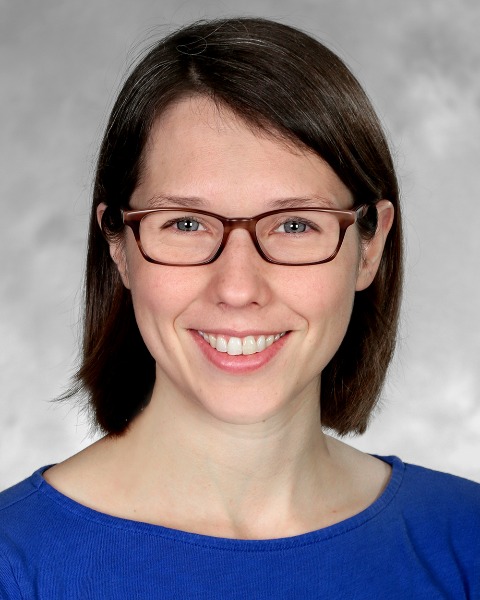Medical Education 6: Health Equity
Session: Medical Education 6: Health Equity
440 - A clinic-based interprofessional workshop leads to sustained improvements in confidence in key elements of gender inclusive primary care
Saturday, April 26, 2025
2:30pm - 4:45pm HST
Publication Number: 440.3967
Emily B. Allen, Hasbro Children's Hospital at Rhode Island Hospital, Providence, RI, United States; Syd LaBonte, Hasbro Children's Hospital at Rhode Island Hospital, Providence, RI, United States; Joshua Ray Tanzer, Brown University Health, Providence, RI, United States

Emily B. Allen, MD, MPH (she/her/hers)
Assistant Professor
Hasbro Children's Hospital at Rhode Island Hospital
Providence, Rhode Island, United States
Presenting Author(s)
Background: Transgender and gender diverse youth (TGDY) face health disparities that are exacerbated by a lack of access to knowledgeable providers and inclusive primary care programs. Educational interventions are being developed to meet these needs, yet few studies focus on interprofessional training, practicing professionals, and impact over time.
Objective: We examine whether a workshop for an interprofessional adolescent medicine team may lead to sustained gains in confidence in providing primary care to TGDY.
Design/Methods: We used Kern’s 6-step approach to develop the workshop, with situated learning as a conceptual framework. An adolescent medicine clinic interprofessional team—including medical providers (MPs: physicians and nurse practitioners) and non-medical providers/staff (NMPS: dieticians, social workers, nurses, medical assistants, and service representatives)—participated in the workshop. We administered a 28-item survey at baseline, immediately post, and 3-months post to assess confidence in the learning objectives as a Kirkpatrick level 2 outcome. We conducted factor analysis to determine the constructs measured. Next, we used generalized linear mixed effects modeling to estimate average confidence ratings for these constructs, with comparisons made by time point and professional role. Finally, we used random effects modeling to test the hypothesis that there was increased confidence immediately post and 3-month post against the null hypothesis of no change from baseline.
Results: Baseline and immediate-post surveys were completed by 6 MPs and 10 NMPS; 3-month-post surveys were completed by 4 MPs and 7 NMPS. Exploratory factor analysis demonstrated 3 constructs: knowledge, communication, and providing medical care. MPs demonstrated improved confidence immediately post and 3-months post in knowledge (p < 0.05 for both), communication (p < 0.05 for both), and medical care (p < 0.05 for both). NMPS demonstrated improved confidence immediately post and 3-months post in knowledge (p < 0.05 for both); gains in confidence in communication immediately post were not sustained (immediate p< 0.05, 3-month p=0.18).
Conclusion(s): We show that a workshop for an interprofessional team can lead to sustained improvements in MP confidence in their knowledge, communication, and ability to provide medical primary care, and NMPS confidence in their knowledge. NMPS confidence in communication improved compared to baseline immediately post, but not at 3-months post. Some NMPS may have had limited exposure to communication with TGDY following the workshop; ongoing situational learning may be required to sustain initial gains.

